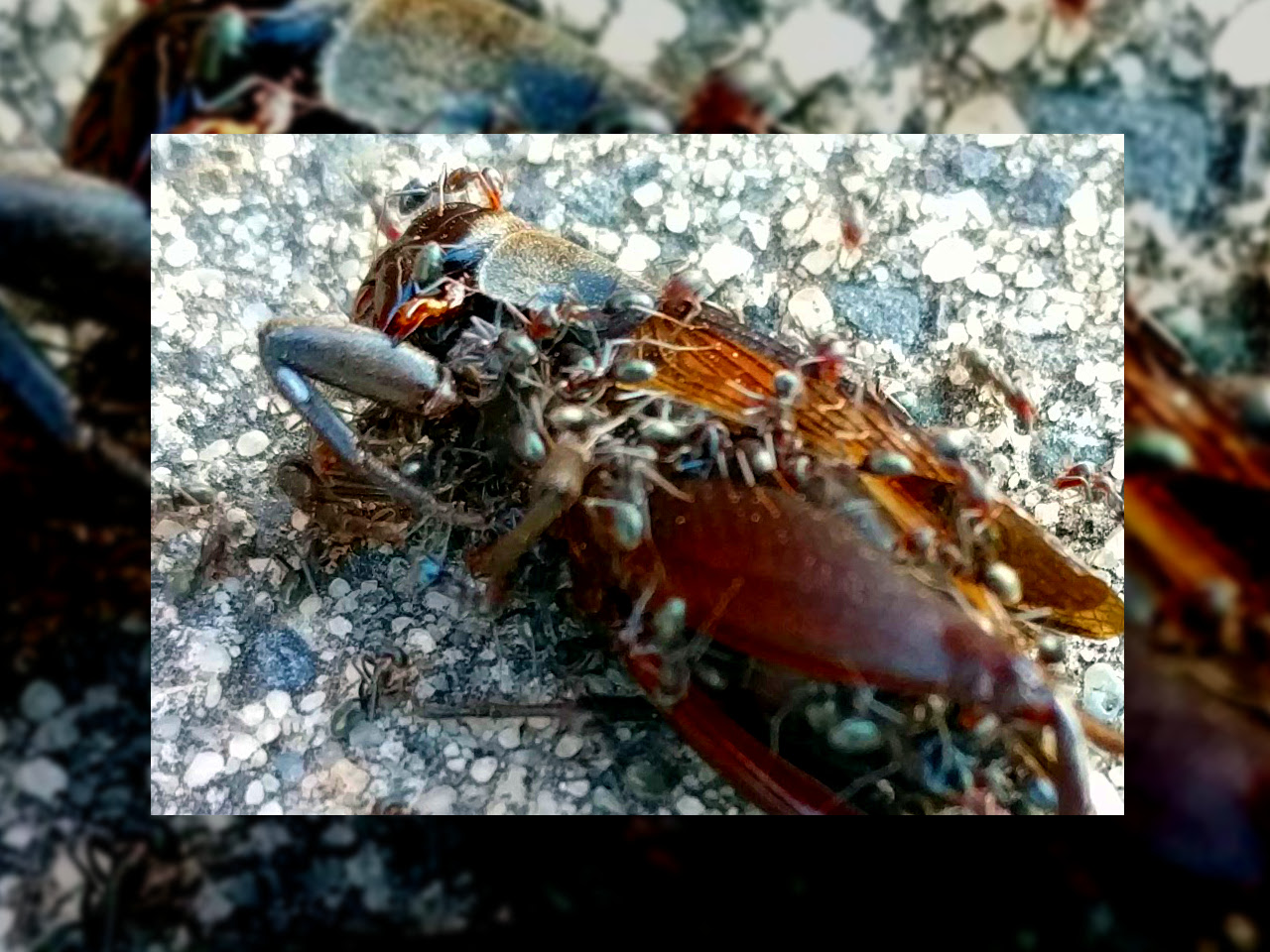In Atlas, Broken, Henry comes across a cricket in his backyard, chirruping merrily at the moon.
The next day, he finds it savagely gutted by ants.
I’m not an expert when it comes to the life-cycle of crickets. Where I live, they come out every Spring, all shiny and black, and chirp like mad throughout Summer.
During Summer you can look in the cracks in the clay soil and find them poking their glossy, black heads out, twitching their antennae, leaping and scurrying away with a purpose. Chirp! Chirp! Their song is full of energy and promise. It’s a chorus of hope, a medley without a beginning and without an end, just one, constant beat. Chirp! Chirp!
And then, as autumn sets in, you hear their tune change. They sing their sorrowful song, their lives are nearly spent. Crrr… Crrr… The grass hides little black bodies, shuffling around aimlessly, hiding when one approaches, silencing their song temporarily until they feel safe once again. Crrr. Crrr.
The cold creeps in. More and more one finds the shells of crickets crumpled on the ground. A mess of brown and black limbs, they have been trodden on, or they simply gave up scurrying. The ants are ruthless, cutting them to bits, dragging all of the smaller pieces back to their nests, leaving the chunky husk to be blown about or crushed underfoot.
After a couple of days there’s nothing left as a reminder. No marking stone, no stain, nothing. The rain has washed away anything the wind has left behind. It might as well be that the cricket never existed at all.

If we look at Henry in the light of the Cricket, is there any wonder that he has such empathy for his little companion?

